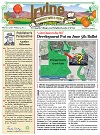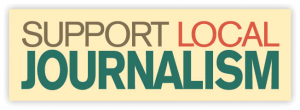The City of Irvine has replied to ICNV’s letter asking City officials to explain its plans to reduce Green House Gas (GHG) emissions. ICNV now responds to the City’s letter.
On December 20, 2017, two of ICNV’s contributing science writers, Carl Mariz and Ed Sharman, sent an important letter to the Irvine City Manager. In their letter, Mariz and Sharman asked the following:
“California, with passage of Senate Bill 32 in 2016, has set a statewide target of 40 percent GHG reduction from 1990 levels by the year 2030. What does the City understand to be its obligations under the California Environmental Quality Act (CEQA) to comply with this goal?”
On January 5, 2018, the City Manager responded with a comprehensive reply that Mariz, Sharman, and other ICNV science writers have analyzed with great care. Carl Mariz and Ed Sharman have since prepared, in letter form, a joint critique of the City’s reported efforts. Their February 23rd letter to the City is reproduced below.
February 23, 2018
Grace Leung, City Manager Pro Tempore
City of Irvine
1 Civic Center Plaza
Irvine CA 92606
Dear Ms. Leung:
Thank you for your email letter of January, 2018. We appreciate that you responded to essentially all of the questions in our letter of December 20, 2017, explaining how the City is addressing the requirements of Senate Bill 32 (the California Global Warming Solutions Act of 2006). We also noted, and we appreciate, the City’s consideration of Community Choice Energy (CCE), which we applaud as being proactive for achieving Green House Gas (GHG) reduction.
However, while we note the City completed its GHG inventory in 2009, we fail to see how Irvine will be able to achieve the 40 percent reduction in GHG emissions by 2030, as required by the State, given the City’s slow pace in quantifying future goals in the various sectors of GHG emission reductions. For example, no specific goals are indicated for City-operated functions and facilities. This should be a relatively easy target to quantify.
On the whole, we must conclude and report to you — and the entire Irvine community — that the City’s policies and programs are woefully inadequate to achieve the requirements of SB 32. The year 2030 is only 12 years away, and the City has yet to develop any kind of comprehensive plan to meet the 40 percent reduction in GHG emissions.
Your letter mentions public transit options, but omits any reference to overall traffic management, a programmatic area where the City is failing miserably. Traffic increases daily with no new, integrated traffic-control systems or public transportation options on the horizon. The solutions to this massive problem are not Irvine’s alone; they involve the County and neighboring cities as well, yet the City has shown little initiative to seek their cooperation.
According to one emissions study, traffic accounts for over 70 percent of GHG emissions in Irvine. Unless the City can quickly develop alternative means of transportation, we will certainly fail to achieve the goals of SB 32. These transportation alternatives should include: expanded use of electric vehicles; enhanced rail transit (using green-energy sources); dramatic expansion of the City’s iShuttle system; and reintroduction of a comprehensive, citywide school bus system; even if these buses must use fossil fuels.
We note the City Staff is doing a good job of tracking energy usage; but, that’s where it seems to end. You mention solar panels, and write: “We currently have solar panels installed at five community centers in Irvine.” But what about the 100,000 homes and other structures in Irvine that do not have solar panels? Regrettably, Irvine has no requirement that new construction include installation of solar roof tiles or any other form of solar panels on rooftops.
It appears that the City’s efforts will fall far short of meeting the State’s SB 32 compliance requirements. We find this unacceptable in a City once known as a pioneering leader in planning and environmental programming. We need dedicated leadership and urgent action from our City officials to achieve timely, concrete, and quantifiable progress in the period immediately ahead.
Carl Mariz
Irvine, CA 92612
Ed Sharman
Irvine, CA 92604
- Construction Set to Begin for the “Heart of the Park” - July 24, 2024
- Irvine Pediatrician & ICNV Health Contributor Named Orange County “Physician of the Year” - July 20, 2024
- Irvine’s Park System Ranked Best in California! - July 19, 2024



